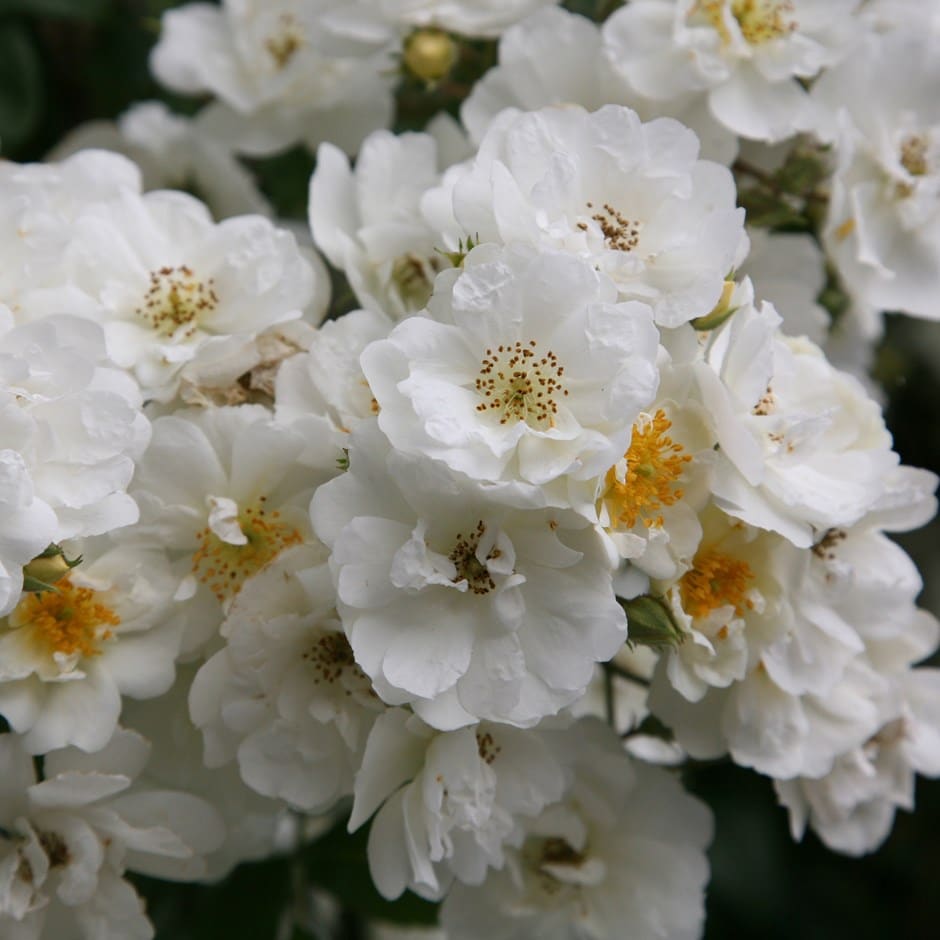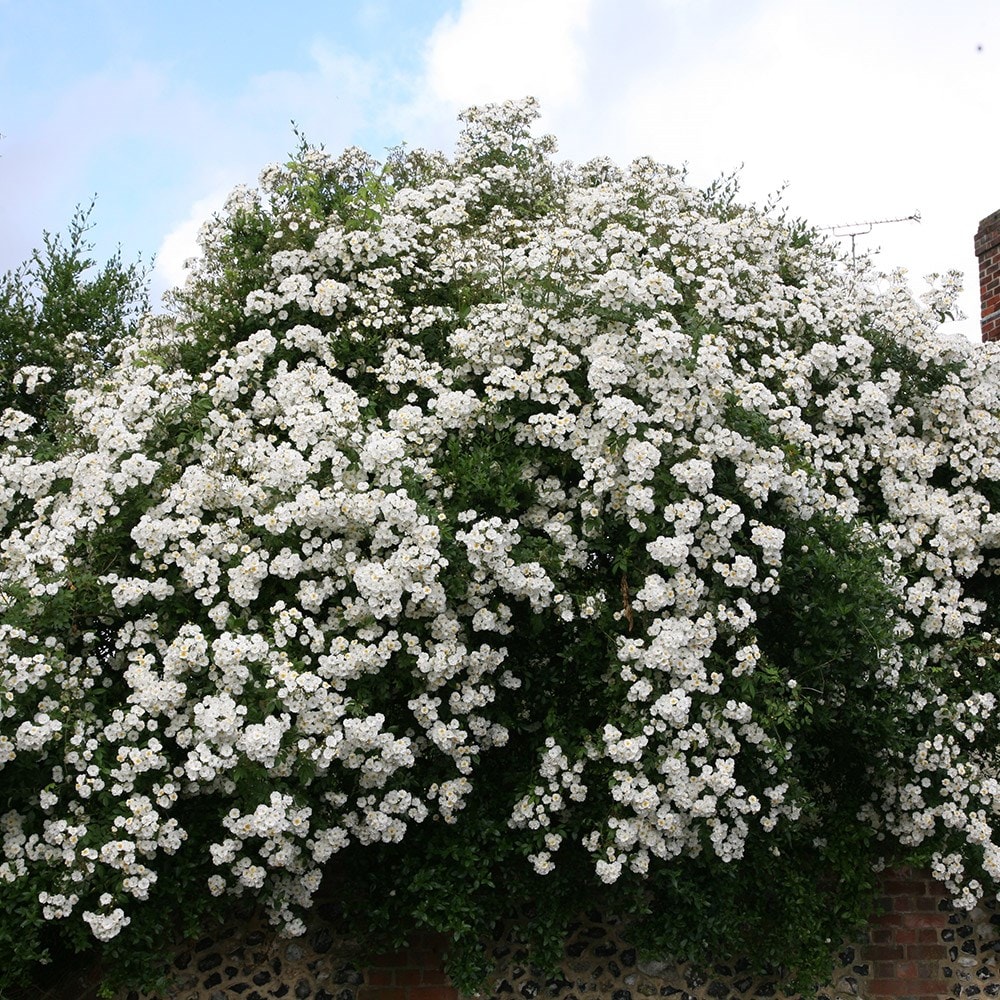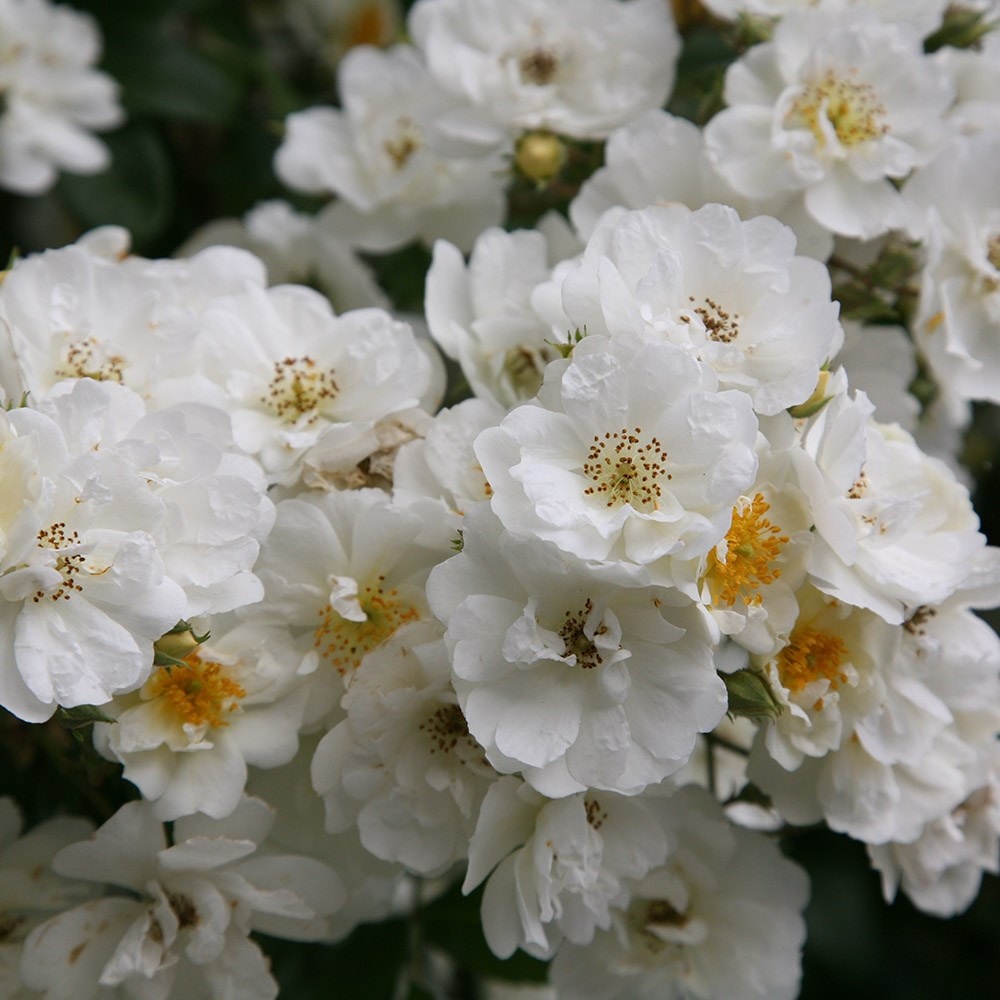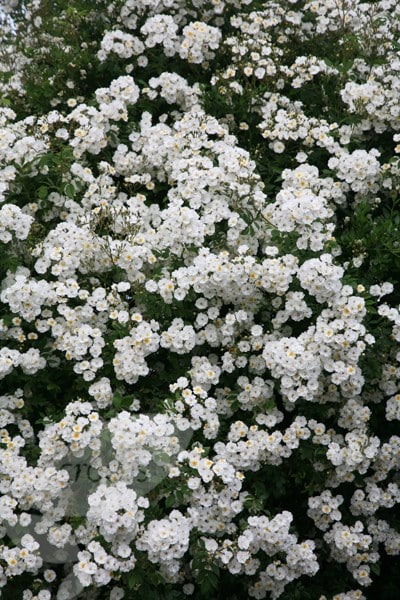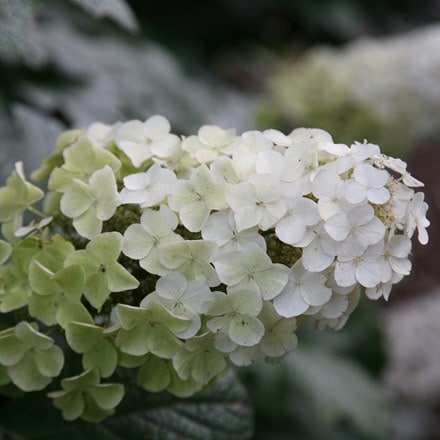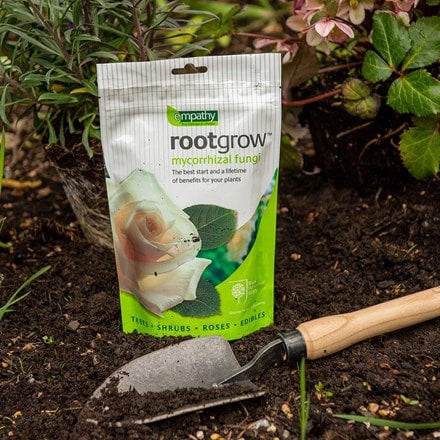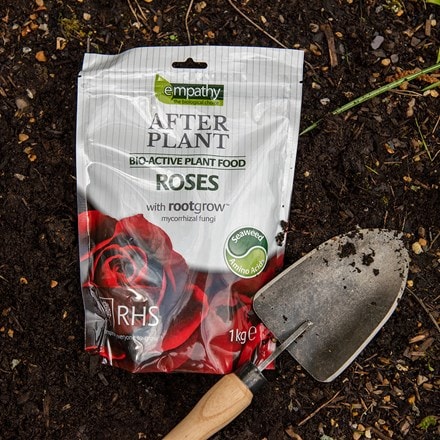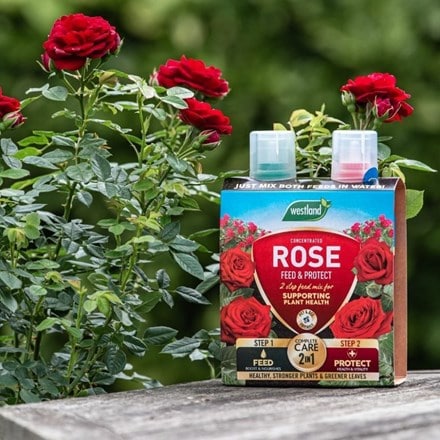Rosa 'Rambling Rector'
rose Rambling Rector (rambler)
Large clusters of scented, semi-double, creamy-white flowers from July to September, followed by small, spherical, red rose hips....
A large white, once-and-only rambler capable of scrambling into trees, covering summer houses or porches, with a strong musk fragrance and often called Shakespeare’s Musk
GOES WELL WITH
Large Flowered Clematis

It is difficult not to get excited about this fabulous group of plants. Their big, bold, brightly coloured flowers, coupled with their versatile growth habits, make this one of the most popular plant groups of all time. There is no secret to their success
Read full articleHow to get more flowers

Many flowering plants can be encouraged to produce better and longer-lasting displays with the minimum of effort. A plant produces flowers in order to reproduce and ensure the survival of the species. Once a plant has flowered and fertilisation has taken
Read full articleHow to create a wildlife-friendly garden
Wildlife-friendly gardens are not only more interesting as you can watch all the comings and goings, but they are often more productive as many creatures will help increase pollination. Garden ponds act as a magnet to dragonflies and damsel flies, along w
Read full articleCottage garden
The traditional cottage garden was an intensive, yet carefree mixture of fruit, vegetables, herbs and flowers all crowded into a tiny space. Today, this informal charm can be recreated using modern varieties that largely take care of themselves around an
Read full articlePruning roses
Early spring is a good time to start pruning roses The exact time will depend on where in the country you are and how cold it is. Pruning time is between mid-March through to early April, watch for when the buds start to swell, but before any leaves appe
Read full articleTop drawer roses for scent
Hybrid Musks mingle well with English honeysuckle and they are amongst the most fragrant and healthy. They perform from July onwards, after the main flush of most roses, so they are useful to the gardener. Hybrid Musks are still in the top drawer, despite
Read full articleRoses for the cutting garden
At some stage in June, your garden will be a glorious affair full of scent and soft flower. Placing a posy from the garden, close to a family hub like the kitchen table, unites your home and garden as effectively as having a huge picture window. You don’t
Read full articlePlanting roses
The rose has been the nation’s favourite flower for centuries, prized for their fragrant blooms that make June the dreamiest month of the year. However late-autumn and winter, when these sleeping beauties are having their long rest, is the best time to p
Read full articleOnce and only or repeat-flowering?
Modern roses are generally bred to be repeat-flowering with a main flush in June, followed by further flowers throughout the season. These roses ration their flowers with five to six weeks between flushes, finishing with a late flourish in October, or e
Read full articleGround cover roses
It’s worth considering planting ramblers on a steep bank for ground cover, so that they tumble downwards as they do at Crathes Castle in Scotland. Or you may consider the low-growing Flower Carpet roses, which are good at covering rough ground and need li
Read full articleClimbing and 'pillar' roses
Many climbing roses have over-large flowers on leggy stems, due to their old-fashioned Hybrid Tea blood. Their pliable stems are ideal for winding around a pillar before the new growth hardens, usually in October and November. This slows the sap and helps
Read full articleTouches of red for the autumn garden
As the days shorten, the autumn sun sinks a little lower every day and begins to backlight the borders, picking up detail and silhouette. There’s plenty to enjoy and rosehips can provide the cherry on the cake, although they vary from red, to soft-orange
Read full articlePlanting roses during late autumn and winter
Roses get away extremely well when planted in their dormant season, between November and early March. Although they will be delivered potted up (to help keep the roots moist), the compost will fall away from the roots as you remove the rose from the pot a
Read full articleGeneral pruning advice for roses
Mature roses are generally pruned in early February, after the worst of the winter is over, using good secateurs like Felco no 2's or 6's. Pruning, just like planting, must only be done in good weather. Generally floribundas are cut back to 45cm.
Read full articlePreventing rose disease
Tidy up any fallen rose leaves now, especially if they look spotty because this is almost certainly a result of a fungal disease called black spot (Diplocarpon rosae). This debilitating disease leads to poor flowering and defoliation, but not all roses ar
Read full articlePlanting companions for roses
Early flowering roses tend to come in shades of white, pink or purple-pink and most forms of the biennial foxglove, Digitalis purpurea, have toning flowers in similar colours. These appear in rose time, but carry on after the first rose flush has finished
Read full articleRoses for poorer soil
Knowing your roses will help enormously when choosing what to plant because not only are there different habits - from large and branching to neat and compact, from ground cover to upright or climbing, some roses are more tolerant of poor soil whilst othe
Read full article


